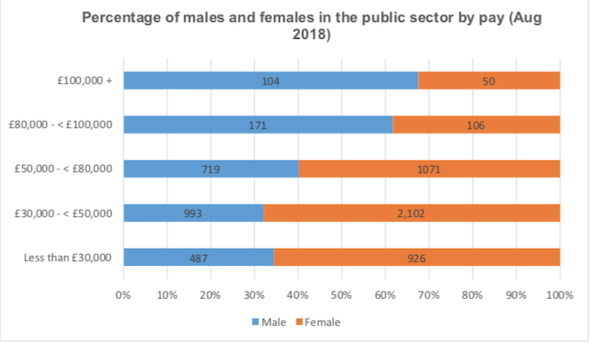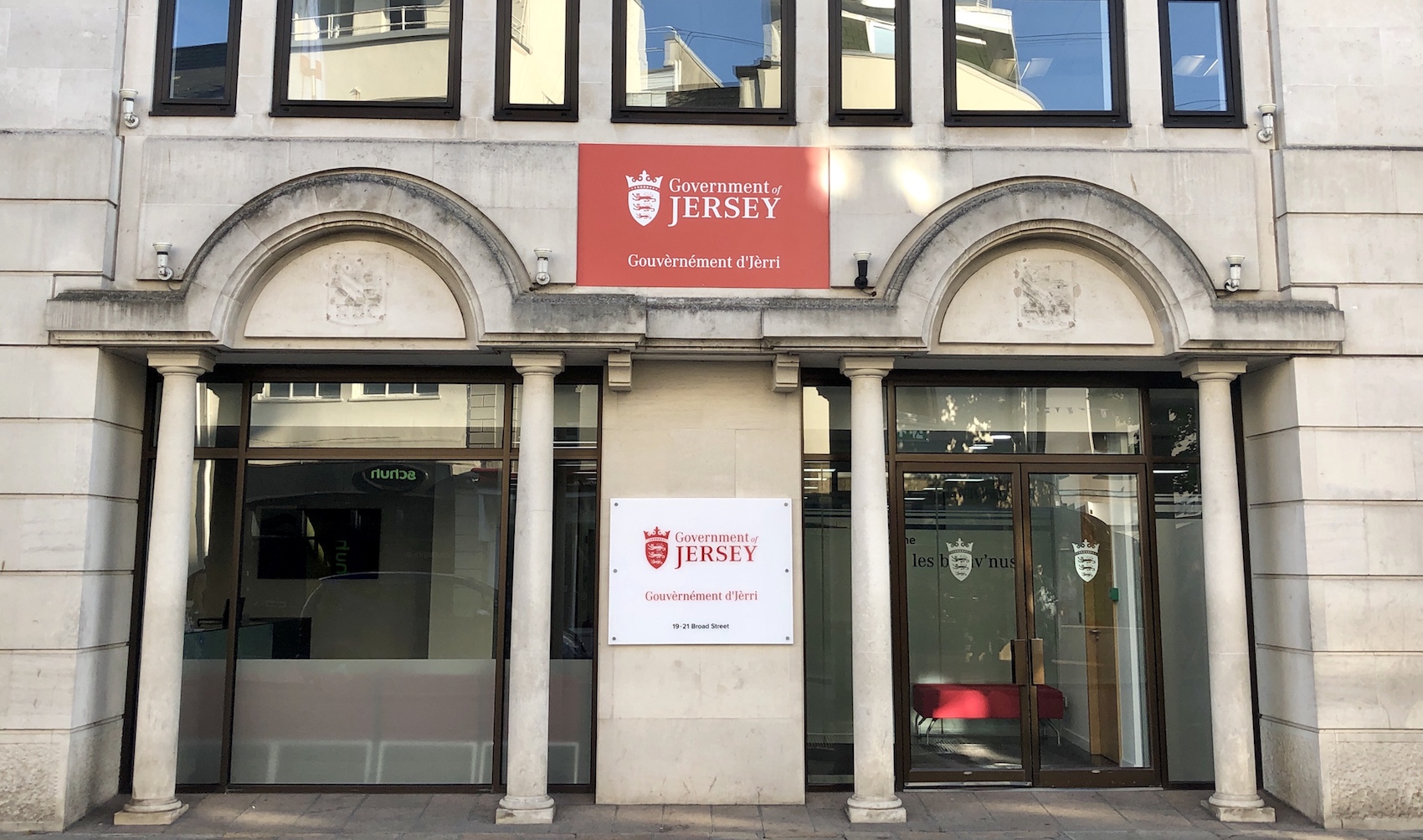

Islanders applying for a job in the civil service are likely to have their name, age, gender and place of education blanked out on their CVs in future, as part of a drive "to attract people from all backgrounds to the government."
According to the government, anonymising the candidates’ protected characteristics could be a way to ensure the most skilled for the role are recruited.
The news that the move towards anonymisation was being considered for public sector recruitment came in a report published yesterday by the Gender Pay Gap Review Panel.
Chaired by Deputy Louise Doublet, the panel found there were differences in the average earnings between men and women.

Pictured: Within the public sector, there is a higher proportion of men in the highest paying jobs.
While statistics are not available for the private sector, data shows that in the public sector men earn 13.6% more than women. Despite there being twice as many women as men in the public sector, the panel also found a greater proportion of men on salaries higher than £80,000 than women.
There was also evidence of a “clear gender imbalance” at the most senior level within the Government of Jersey, which is dominated by men.
The 'OneGov' structure chart shows that, of the seven newly-created Director General posts, only one is held by a woman – Caroline Landon, who heads the Health Department.
However, the panel found this was due to a number of factors, including gender stereotypes, occupational segregation, barriers preventing women from advancing in their profession (commonly known as a "glass ceiling"), as well as domestic duties and caring responsibilities which are typically undertaken by women.

Pictured: It is often assumed that women will have children in their 30s.
Unconscious bias, whereby automatic associations are made based on a candidate’s gender, was also said to be part of the problem.
An example of this would be the assumption that a woman in her 20s will, when she is in her 30s, have a child, the Panel explained.
“...Better training is required to ensure that organisations do not draw on gendered language or value a particular personality or leadership trait over others. Organisations can implement a number of practices to make recruitment practices more gender neutral," they wrote.
Anonymising CVs was said to be a step in the right direction and one which the Government – which the Panel criticised for not prioritising “a diverse and inclusive society”, leading some to question how much importance they actually put on diversity in the workplace – is now working on implementing.

Pictured: CVs will soon be anonymous to ensure the most skilled candidate is hired.
This would involve the removal of names, age, gender and place of education from CVs.
A spokesperson confirmed the Government of Jersey is exploring options from a technology and recruitment process perspective to anonymise candidates’ protected characteristics and education histories as part of the initial application and selection stages of a recruitment process.
“We are due to consult with the UK Civil Service who adopted this approach across UK Government Departments in 2015,” they added.
“As a major employer on the island, we are also looking at new ways to attract people from all backgrounds to the Government. To do this, we need to ensure that nothing in the recruitment process puts up barriers that prevent the best talent from joining us.”

Pictured: The Government is changing its recruitment practices.
The move was welcomed by the Panel, who also recommended the government start collecting data and evidence about the gender pay gap in the public sector.
“Diversity is important in all aspects of life, and is particularly important in the workplace,” the panel wrote. “A host of researchers have shown that diversity at all levels can make organisations more effective, successful and profitable. Achieving a diverse workforce also widens the talent pool and has reputational benefits for an organisation.”
Comments
Comments on this story express the views of the commentator only, not Bailiwick Publishing. We are unable to guarantee the accuracy of any of those comments.